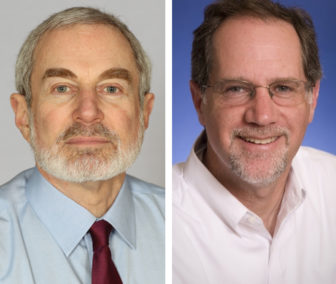 In just the last month or so, the National Council of Juvenile and Family Court Judges (NCJFCJ) and the American Academy of Pediatrics (AAP) joined a growing list of national organizations calling for an end to the solitary confinement of young people in this country. The AAP endorsed the Stop Solitary for Kids campaign’s position statement.
In just the last month or so, the National Council of Juvenile and Family Court Judges (NCJFCJ) and the American Academy of Pediatrics (AAP) joined a growing list of national organizations calling for an end to the solitary confinement of young people in this country. The AAP endorsed the Stop Solitary for Kids campaign’s position statement.
And a new resolution from NCJFCJ calls for an end to solitary confinement as defined by Stop Solitary for Kids: “the involuntary placement of a youth alone in a cell, room, or other area for any reason other than as a temporary response to behavior that threatens immediate harm to the youth or others.”
We commend NCJFCJ and AAP for recognizing the critical role played by judges and medical staff in ensuring the well-being of youth in facilities and urging their colleagues to take a leadership position on this issue. Support to end solitary for kids from organizations representing juvenile court judges and pediatricians across the country shows the momentum building to end this harmful practice.
[Related: Youthful Robber Released As Senior Now Helps Other Prisoners]
It has been 10 months since President Obama described solitary confinement as “an affront to our common humanity” and banned its use for youth in federal custody. Within those months, we’ve launched the Stop Solitary for Kids national campaign to end solitary confinement of youth. Organizations including the American Correctional Association have called for action to reduce solitary confinement for youth. Nebraska, California and Colorado have adopted legislation to limit solitary. The movement has found support from increasingly diverse states and organizations.
For more information, visit the JJIE Resource Hub
The goal is to end a practice that harms young people and makes facilities less safe, for youth and the staff who work in them. Juvenile justice agencies in Ohio, Indiana, Massachusetts and Oregon have nearly achieved this goal, greatly reducing solitary confinement while simultaneously reducing violence within their facilities. Those agencies have shown that ending solitary confinement yields benefits for young people and the staff charged with caring for them.
Today, the question isn’t “Can we stop solitary for kids?” The question is how soon we will do it. Despite significant developments in the field, there is still a long way to go to end solitary confinement for all youth. Advocates — especially those involved in justice reform — often face the frustrating reality that change comes slowly. Meanwhile, thousands of youth continue to be placed in solitary confinement every year. The urgency is tangible.
NCFCJ’s resolution is an important example of stakeholders within the justice system taking a stand against a dangerous, ineffective and counterproductive practice. However, there are many more who have yet to join the cause. We encourage leaders across all fields to join the movement today and help us achieve a world where we Stop Solitary for Kids.
Mark Soler is the executive director of the Center for Children’s Law and Policy in Washington, District of Columbia.
Marc Schindler is the executive director of the Justice Policy Institute. He formerly served as general counsel, chief of staff and interim director for the Department of Youth Rehabilitation Services in Washington, District of Columbia.
More related articles:
Will Other States Follow California and End Youth Solitary Confinement?
Locked in the Box: Student Assignment – 24 Hours in Solitary